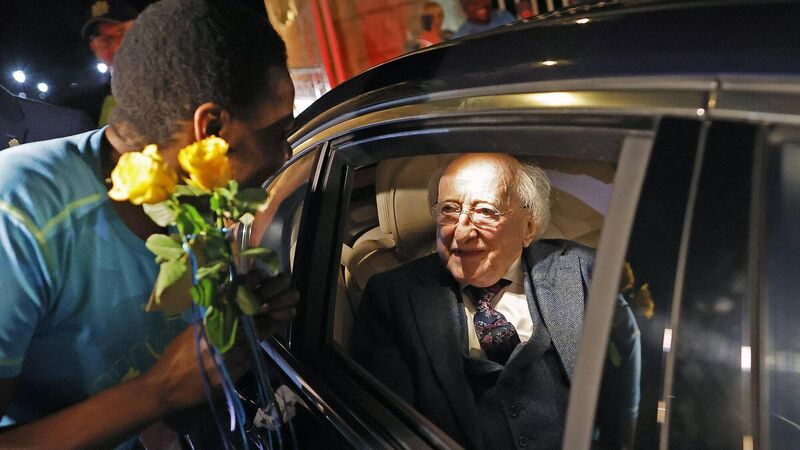Irish Examiner View: Michael D Higgins served this State well

Monica Pumpkin, originally from Botswana, and a member of the Sanctuary Runners organisation presents President Michael D Higgins and Mrs Higgins with yellow roses, symbolising friendship and joy, as they leave Áras an Uachtaráin. Picture: Julien Behal Photography













